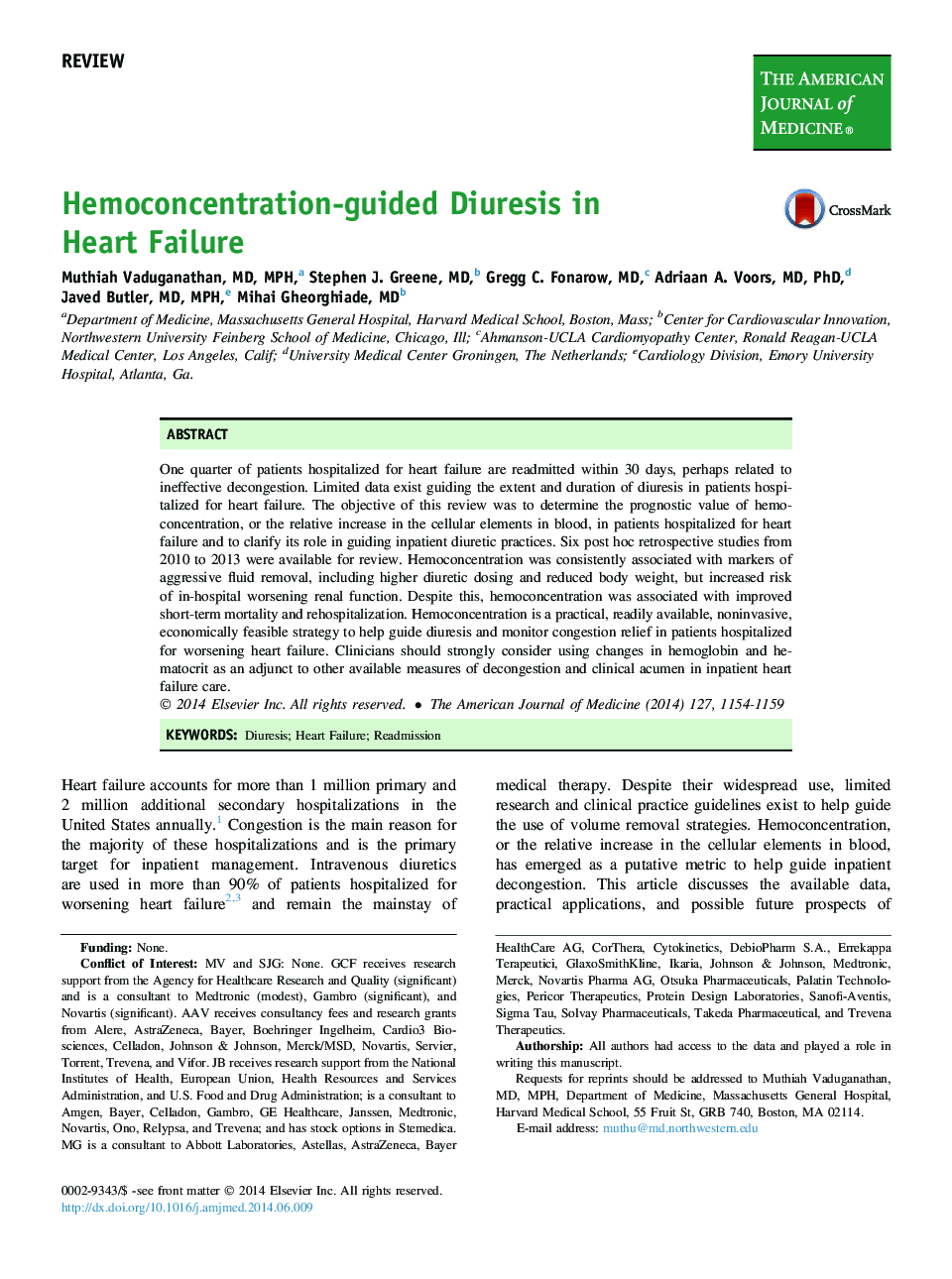| Article ID | Journal | Published Year | Pages | File Type |
|---|---|---|---|---|
| 5875873 | The American Journal of Medicine | 2014 | 6 Pages |
Abstract
One quarter of patients hospitalized for heart failure are readmitted within 30 days, perhaps related to ineffective decongestion. Limited data exist guiding the extent and duration of diuresis in patients hospitalized for heart failure. The objective of this review was to determine the prognostic value of hemoconcentration, or the relative increase in the cellular elements in blood, in patients hospitalized for heart failure and to clarify its role in guiding inpatient diuretic practices. Six post hoc retrospective studies from 2010 to 2013 were available for review. Hemoconcentration was consistently associated with markers of aggressive fluid removal, including higher diuretic dosing and reduced body weight, but increased risk of in-hospital worsening renal function. Despite this, hemoconcentration was associated with improved short-term mortality and rehospitalization. Hemoconcentration is a practical, readily available, noninvasive, economically feasible strategy to help guide diuresis and monitor congestion relief in patients hospitalized for worsening heart failure. Clinicians should strongly consider using changes in hemoglobin and hematocrit as an adjunct to other available measures of decongestion and clinical acumen in inpatient heart failure care.
Keywords
Related Topics
Health Sciences
Medicine and Dentistry
Medicine and Dentistry (General)
Authors
Muthiah MD, MPH, Stephen J. MD, Gregg C. MD, Adriaan A. MD, PhD, Javed MD, MPH, Mihai MD,
